We have much more to do and your continued support is needed now more than ever.
Participants in the 2022 Campus Race to Zero Waste divert more than 27.9 million pounds of waste from the landfill through donation, composting, and recycling efforts.
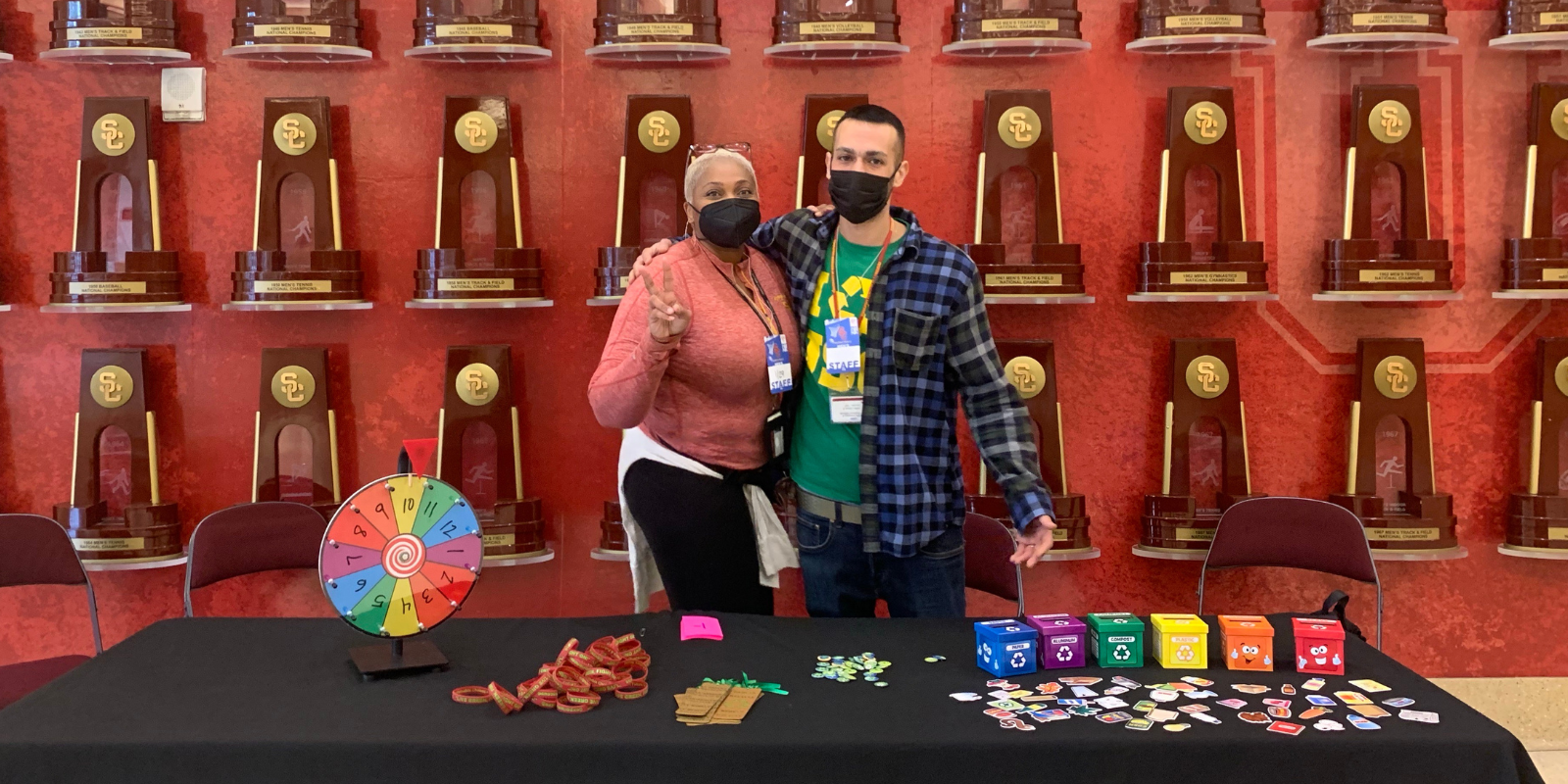
3.6 million college students, faculty and staff across 200 college campuses kept more than 200 million single-use plastic containers out of the landfill.
The National Wildlife Federation and RecycleMania Inc. are excited to announce 16 colleges and universities as winners for this year’s Campus Race to Zero Waste Competition. Three winners were selected in each major category, representing small, medium and large campus sizes, with individual winners announced for special categories.
More than 3.6 million college students and staff across 200 campuses competed in 2022 to reduce their waste footprint through minimization efforts by donating, composting and recycling more than 27.9 million pounds of waste. As a result, they kept more than 200 million single-use plastic containers out of landfills and prevented the release of 30,288 metric tons equivalent of carbon dioxide into the atmosphere, equal to avoiding the annual emissions from 6,376 cars.
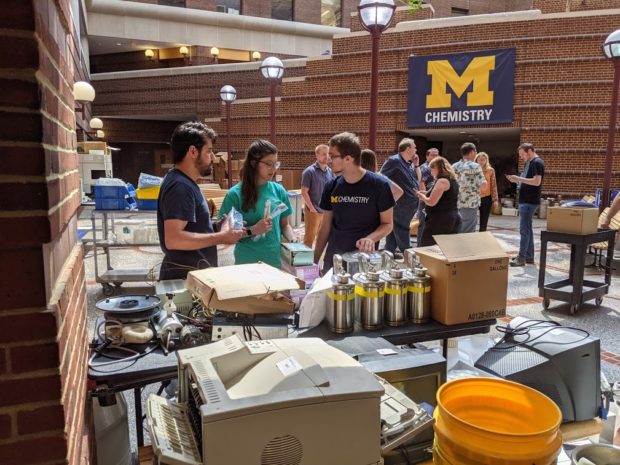
“Working alongside RecycleMania Inc. to engage and educate millions of students, staff and faculty in the U.S. has had an undeniable impact on the environment, wildlife and surrounding ecosystems. This competition demonstrates the monumental difference we can make if we come together to reduce our waste,” said Kim Martinez, vice president of education and engagement programs at the National Wildlife Federation. “We look forward to building this program’s decades long impact with our college and university partners.”
“Annually the Campus Race to Zero Waste competition provides key tools and opportunities that inspire, empower and mobilize colleges and universities to improve their efforts to reduce and eliminate waste,” says Stacy Wheeler, president and co-founder of the competition. “Congratulations to all participating campuses. Your efforts are significant and noteworthy. Your competition engagements on campus not only provide environmental and economic benefits, but are inherent of creating good global citizens of where we work, learn and live.”
Winners from each category include:
Zero Waste Category
- Small campus: Western Colorado University, Colorado
- Medium: No campuses named in this category for the 2022 competition
- Large campus: University of Michigan Ann Arbor, Michigan
Food Organics Category
- Small campus: Wofford College, South Carolina (Second in ranking, Aquinas College)
- Medium campus: Loyola Marymount University, California (Second in ranking, College of William and Mary)
- Large campus: Central Michigan University, Michigan (Second in ranking, Cornell University)
Diversion Category
- Small campus: Macalester College, Minnesota (Second in ranking, Kendall College of Art and Design)
- Medium campus: Loyola Marymount University, California
- Large campus: University of Louisville, Kentucky
Per Capita Category
- Small campus: Coe College, Iowa (Second in ranking, St. John’s University)
- Medium campus: Loyola Marymount University, California (Second in ranking, Bryant University)
- Large campus: Stanford University, California (Second in ranking, Washington University in St. Louis)
Race to Zero Waste—One Building challenge
- Aquinas College, Michigan
Electronics challenge
- Per Capita Recycling category: Bryant University
- Total Pounds Recycled category: Cornell University
GameDay Basketball
- Diversion category: University of Southern California, California
- Per Capita Recycling category: University of the Incarnate Word, Texas
Reviving and Relaunching Waste Reduction Efforts
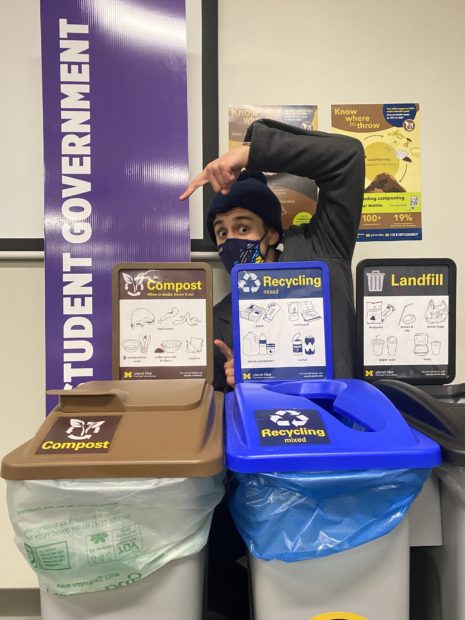
A few key themes were clear during this year’s competition, campuses were eager to revive and relaunch waste reduction efforts that were halted due to the pandemic. Many schools focused their efforts on local food security issues through support of food recovery programs and centered their education and awareness campaigns on waste disposal and safety.
In 2020, the program (and competition) changed its name from RecycleMania to Campus Race to Zero Waste to better reflect the purpose of the program—to help colleges and universities work toward zero waste on campus. In the spirit of the program’s stronger focus on zero waste, starting in 2021, the Campus Race to Zero Waste transitioned from awarding the competition winners physical awards (typically made of recycled content materials) to awarding them electronic badges to more easily share with their campus communities by posting on websites, and featuring in email and social media.
Additionally, starting last year, the competition began recognizing three campuses per main category (Zero Waste, Food Organics, Diversion, and Per Capita) based on the Carnegie Classification of size—small/very small, medium and large. This helps level the playing field for all campus participants.
For more details about CR2ZW categories and winners, please visit the 2022 Scoreboard.
The Campus Race to Zero Waste 2022 is powered by Rubicon, a technology company born in the waste and recycling industry and committed to environmental innovation.
“Rubicon’s mission is to end waste, and we are honored to once again play a role in helping college students across the United States learn about sustainable practices and their positive impact on our environment,” said David Rachelson, Chief Sustainability Officer at Rubicon. “If those who have participated in this year’s competition represent the future of the zero-waste movement in our country, I believe we can create a cleaner, healthier, and safer world for all.”
Opportunities to Participate in the Campus Race to Zero Waste
For colleges and universities ready to compete to reduce their waste footprint, registration for the 2023 competition opens in September 2022. Other opportunities to engage with the CR2ZW include:
- Share a best practice case study of your waste reduction efforts on campus—zero waste, food waste reduction, education and awareness, and more! Winners are recognized and all case studies are featured online and shared via social media. Case studies are due June 20, 2022.
- Become a Plastics Reduction Partner. This new certification program is for colleges and universities taking action to reduce their purchase and use of single-use plastics on campus. The Plastics Reduction Partner certification program features three levels of recognition—Bronze, Silver and Green, is eligible for AASHE STARS innovation credit, and is an action of the #BreakFreeFromPlastic movement.
Why Are These Campus Actions So Important?
Lowering the waste footprint helps campuses tackle two of the biggest threats to the environment—pollution and a warming climate.
Management and disposal of solid waste material, especially plastics, has become one of the most challenging environmental problems of our time. The entire world has shifted, in the past 30 years, to single-use plastics as a way of eating, drinking, washing and packaging merchandise that goes straight into the waste stream, on to landfills and ultimately into the natural environment—with the accumulated waste lasting for decades and posing a hazard to living creatures including humans.
It is clearly a problem for people and for nature and wildlife that is expanding globally including in the U.S. Plastics of different sizes are being ingested by billions of creatures—and are killing and/or harming endangered species at sea and on land; it is estimated that ingestion of plastic kills 1 million marine birds and 100,000 marine animals each year.
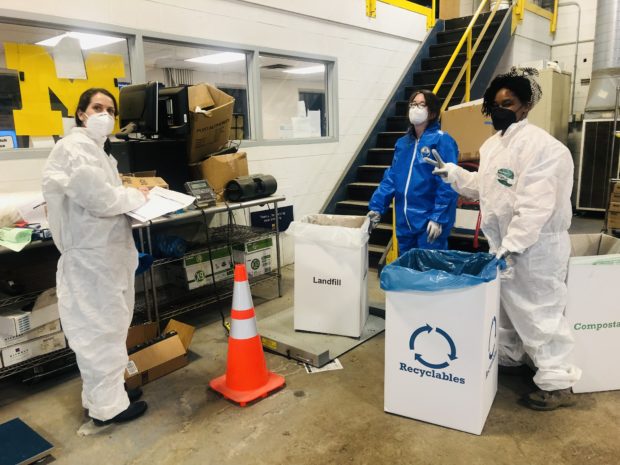
Additionally, through campus efforts to increase their recycling and reduce their food waste, colleges and universities are making a positive impact on the climate.
Campus efforts to reduce the purchase and use of new products results in less energy needed to extract, transport and process materials to manufacture these new products. The purchase of materials made of recycled materials is also key. One of the most popular categories of the competition each spring is the Food Organics category; more than 150 campuses compete each year in this category.
Minimizing Food Waste
The main goal of the Food Organics category is to recognize campuses that are successfully implement food waste minimization activities that address overage including portion control techniques and preparing food to order. The secondary focus for this category is how food waste recovered is managed, such as donation to people, used for biofuels, and composting.
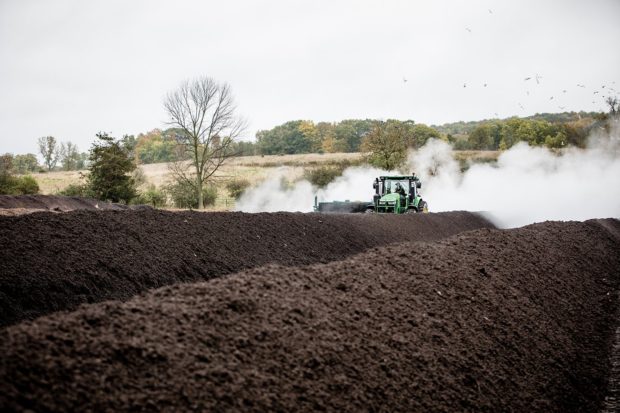
According to Food Rescue, American food production has a tremendous energy resource cost—10% of the nation’s total energy budget, 50% of its land, and 80% of all U.S. freshwater consumption is dedicated to the production and distribution of food.
Today over 1,100 colleges and universities in the U.S. and Canada have participated in the Campus Race to Zero Waste (formerly RecycleMania) program, diverting more than 1,100 million pounds of waste through waste minimization efforts, donation, reuse, composting, and recycling. Through these efforts, campuses have also prevented the release of nearly 1.68 million metric tons of carbon dioxide equivalent, which is comparable to removing over 346,000 gas engine passenger vehicles from the road for one year.
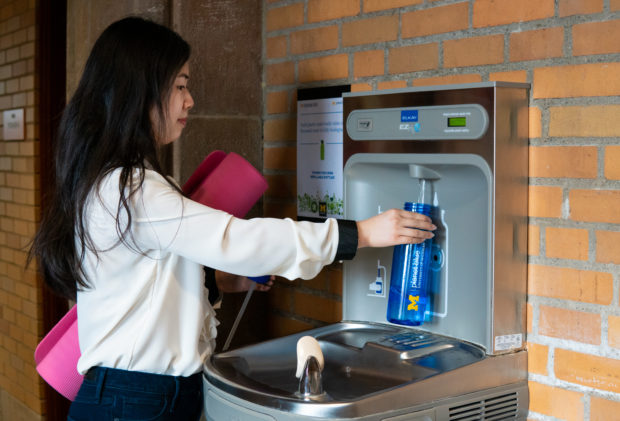
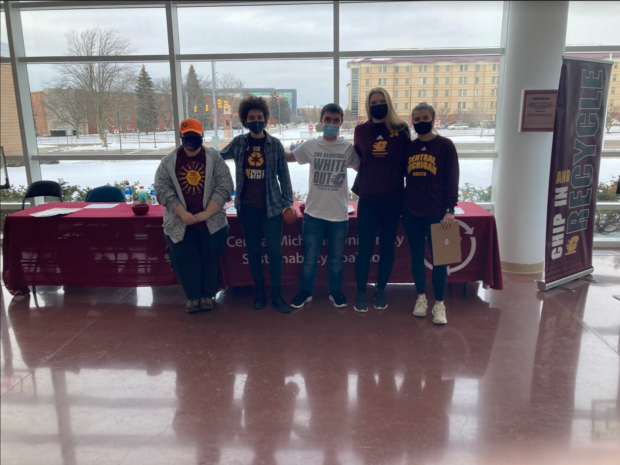
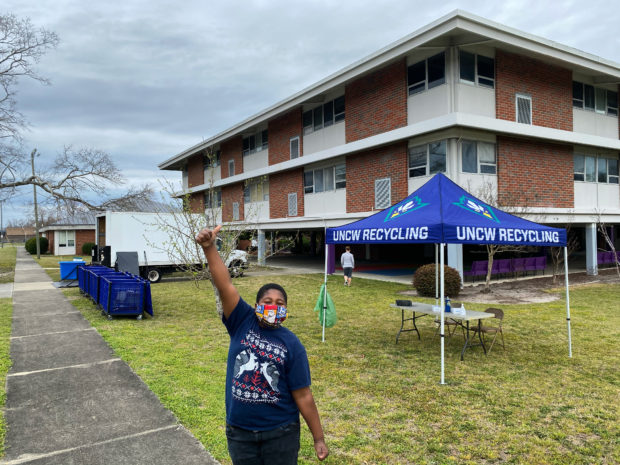
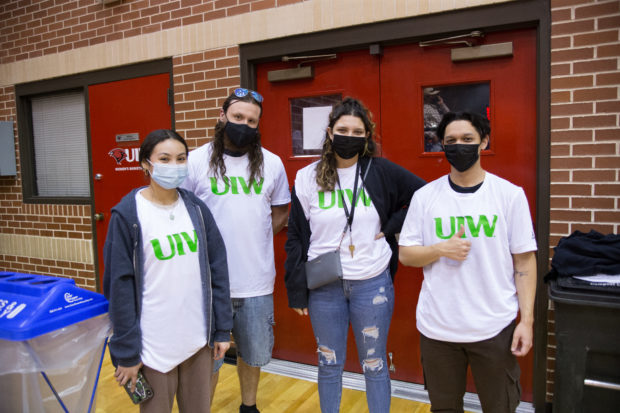
About Campus Race to Zero Waste
Campus Race to Zero Waste—formerly known as RecycleMania—is the nation’s premier waste reduction and recycling competition among colleges and universities, managed by National Wildlife Federation, and governed by RecycleMania, Inc. Campus Race to Zero Waste has been helping campuses minimize waste and improve their recycling efforts, since its launch in 2001.
Questions? Contact CR2ZW@nwf.org






















